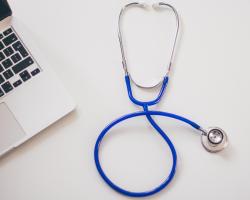Is it worth taking supplements? The Americans do not have any doubt - over 75 % of the population have been taking them for at least 10 years. However, the Americans are not a good example if it comes to the proper use of supplements – they use them too often and in too-high doses.
However, there is no doubt that some people should use dietary supplements.
SUPPLEMENTS - FOR WHOM?
Doctors advise that women of reproductive age should take dietary supplements – in their case, taking folic acid before becoming pregnant lowers the risk of giving birth to a child with a serious disorder of the central nervous system, which is a neural-tube defect.
Before becoming pregnant and during pregnancy, a standard diet does not cover the need for the so-called folates (folic acid exists in the diet in the form of folates) in most cases. That is why women who are planning a pregnancy should take folic acid in the dose of 40 micrograms daily for 6 weeks before impregnation and during at least the first three months of pregnancy. Folic acid, which is a compound of the vitamin B group, is beneficial to the nervous system and the brain.
Supplements are also recommended for elderly people, because their bodies might improperly absorb some nutrients. It often happens that they lack calcium, vitamins D, E, C, B6, B12, folic acid and Omega-3 polyunsaturated fatty acids.
But it not always the case – age does not determine the fact of how we absorb food; it is more dependent on the general state of health and fitness. Therefore, not all retired people need to use multivitamin products, particularly as they are quite expensive. It is better to consult a doctor or a dietician.
Katarzyna Stoś, MD, from the Institute of Food and Nutrition in Warsaw, points out that it is also justified for people whose diet is unbalanced to take food additives. It is often the case with a low-calorie, restrictive diet, with calories under 1600. Vitamin B and calcium deficiency appear in the case of some vegetarians, especially when they give up dairy products.
FIRST – A DIVERSE DIET
Let’s remember - nutrients are better absorbed when they come from food; then, they are also the safest. Therefore, one should not replace a diverse diet with supplements – this cannot be the way to modify the effects of inappropriate nutrition. Instead of taking pills it is better to change diet – eat more vegetables and fruit; it is also worth supplementing one’s everyday menu with a handful of nuts.
Supplements do not prevent serious diseases – at the least, there is no evidence for it. Indeed, it is suspected that Omega-3 fatty acids can reduce the risk of heart attacks. However, there are no independent studies confirming the fact that the strongest so-called antioxidants, flavonoids, which are present in food additives, prevent heart diseases and cancer.
Stoś, MD, tries to convince us that at first one should improve one’s everyday diet, because there is more evidence that vitamins and other mineral nutrients present in food, not in supplements, prevent many diseases. The example is beta-carotene in tablets, which increases the risk of cancer for smokers, rather than reduces it. Supplements can generally help us when there is a high deficiency of some nutrient in our bodies or their dose should be increased for some period, for example, folic acid in women planning a pregnancy.









Comments (0)